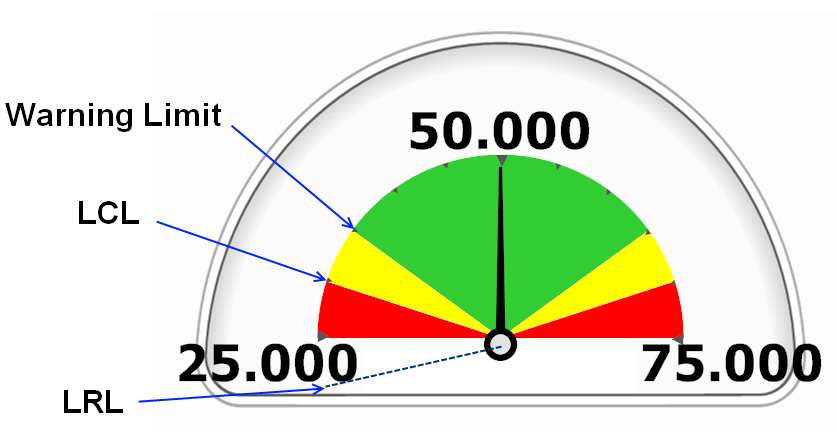This topic describes the different control limits that are used.

Control Limits (LCL and UCL)
These are the most important limits as they are used to calculate whether a system is in control. The limits are calculated based on previous samples and tend to be 3 sigma from the mean.
The Nelson Rules and WECO Rules use the Control Limits to calculate whether a system is in control.
Reasonable Limits (LRL and URL)
You will not be able to enter a value outside these limits. They are the outer most limits and are there to prevent any erroneous typing errors from being entered.
Warning Limits (LWL and UWL)
The warning limits are set using the Warning %. For example, if you set the Warning % to 5% then they will be 5% within the control limits. These limits are purely a guideline to the operator and are not used in the control calculations.
Specification Limits
These limits are used when calculating the Control Limits. They are not used in control calculations but still have to be entered for reference information.
Nominal
This is the target value when using Specification Limits. It is generally in the center of the limits. They are not used in control calculations but still have to be entered for reference information.